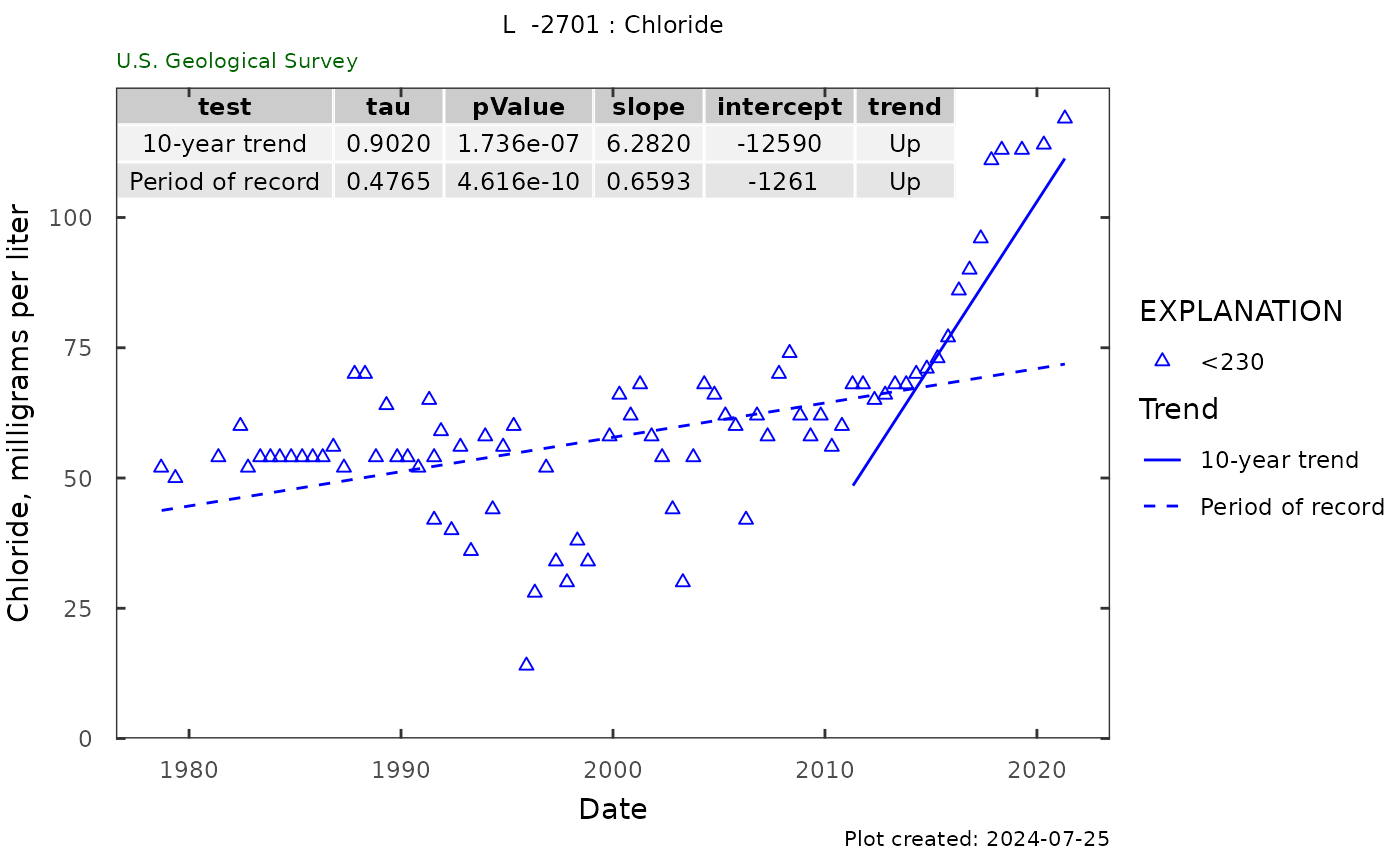
Chloride plot with trend
chloridetrend.RdFunction creates the cloride over time plot with trends.
Arguments
- qw_data
data frame returned from
readWQPqwmust include columns ActivityStartDateTime, CharacteristicName, result_va- plot_title
character title for plot
- y_label
character label for y axis. If left as NA, the function will attempt to use the "variableInfo" attribute of qw_data. This is attached to dataRetrieval output.
- n_years
integer. This is the number of years to calculate the trend on. Default is 10. This can be a vector of years.
- POR_trend
a logical indicating whether to include a trend test for the full period of record. Default is
TRUE.- CharacteristicName
character CharacteristicName to plot
- norm_range
a numerical range to potentially group the data. If NA, no grouping is shown.
- subtitle
character. Sub-title for plot, default is "U.S. Geological Survey".
- include_table
logical whether or not to include the trend table in the upper left corner.
Examples
# site <- "USGS-263819081585801"
# parameterCd <- c("00095","90095","00940","99220")
# site_data <- dataRetrieval::readWQPqw(site,
# parameterCd)
# Using package example data:
qw_data <- L2701_example_data$QW
plot_title <- paste(attr(qw_data, "siteInfo")[["station_nm"]], ": Chloride")
trend_plot(qw_data, plot_title)
#> Registered S3 methods overwritten by 'ggpp':
#> method from
#> heightDetails.titleGrob ggplot2
#> widthDetails.titleGrob ggplot2
